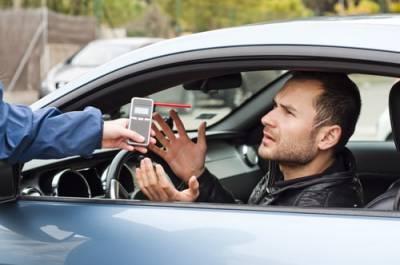Can I Refuse to Take a Breathalyzer Test When Pulled Over for DUI?
 Any type of traffic stop can be a nerve-wracking experience, since even low-level traffic violations can result in fines, penalties to a person’s license, increased insurance rates, and other consequences. However, situations where a person may be suspected of driving under the influence of alcohol or drugs can be even more stressful, since a conviction on DUI charges can lead to driver’s license suspension or revocation, potential time in prison, and a permanent criminal record. In these cases, drivers will want to understand their rights regarding breathalyzer testing, including the potential consequences of refusing a blood alcohol test.
Any type of traffic stop can be a nerve-wracking experience, since even low-level traffic violations can result in fines, penalties to a person’s license, increased insurance rates, and other consequences. However, situations where a person may be suspected of driving under the influence of alcohol or drugs can be even more stressful, since a conviction on DUI charges can lead to driver’s license suspension or revocation, potential time in prison, and a permanent criminal record. In these cases, drivers will want to understand their rights regarding breathalyzer testing, including the potential consequences of refusing a blood alcohol test.
BAC Testing and Implied Consent
Anyone who drives on public roads in Illinois is presumed to have given consent to chemical testing to determine their blood alcohol content (BAC) or whether they have other intoxicating drugs in their system if they are arrested on suspicion of DUI. However, it is important to understand what types of tests this implied consent applies to.
In many cases when a person is pulled over because they are suspected of driving while intoxicated, a police officer will ask the driver to submit to a portable breathalyzer test. An officer may also ask the driver to exit their vehicle and take field sobriety tests that are meant to gauge their level of coordination and determine whether they are too intoxicated to drive. These preliminary BAC tests and field sobriety tests are voluntary, and their results are usually not admissible as evidence in a DUI case. Instead, they are used to determine whether an officer has probable cause to make an arrest. While drivers are allowed to refuse these tests, doing so may give the officer a reason to arrest them.
After being arrested, drivers will be asked to submit to chemical testing of their breath, blood, or urine. These tests will be conducted at a police station or medical facility using equipment that is meant to provide an accurate measurement of a driver’s BAC or the presence of marijuana or other drugs in their system. Implied consent applies to these chemical tests performed following an arrest, and refusing to submit to these tests will result in a one-year suspension of a person’s driver’s license for a first offense, or a three-year suspension for a second or subsequent offense within five years.
A driver who refuses to submit to a breathalyzer test or other chemical tests following an arrest may still face DUI charges, and their refusal may be considered as evidence along with other factors, such as the testimony of the arresting officer. Drivers should also be aware that even if they refuse testing, police may still obtain a warrant to conduct testing without their consent. Testing may also be performed without consent if a driver is unconscious or otherwise incapable of refusal.
Contact Our Kane County DUI Defense Attorney
At the Law Office of Brian J. Mirandola, we can help you understand your rights following a DUI arrest, and we will advise you of the best course of action that will help you avoid a conviction or minimize the penalties to your license and your reputation. To learn how we can help you build a successful defense strategy, contact our Aurora DUI lawyer at 847-488-0889 and schedule a free consultation today.
Sources:
https://www.ilga.gov/legislation/ilcs/fulltext.asp?DocName=062500050K11-501.1
https://www.cyberdriveillinois.com/publications/pdf_publications/dsd_a118.pdf








